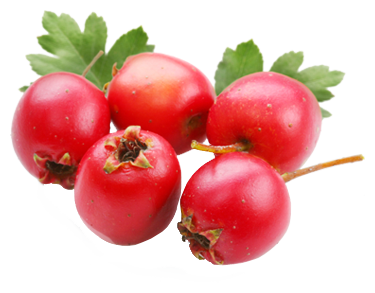|
Antioxidant
properties
Laboratory studies have found that hawthorn contains active
compounds with antioxidant properties. Antioxidants are substances that
scavenge free radicals; damaging compounds in the body that alter cell
membranes, tamper with DNA, and even cause cell death. Free radicals occur
naturally in the body, but environmental toxins (including ultraviolet light,
radiation, cigarette smoking, and air pollution) can also increase their
number.
Free radicals are believed to contribute to the ageing
process as well as the development of a number of health problems including
heart disease. Antioxidants found in hawthorn can neutralise free radicals and
may reduce or even help prevent some of the damage they cause.
Congestive
heart failure
Hawthorn has primarily been studied in people with
congestive heart failure (a health condition in which the heart is unable to
pump adequate amounts of blood to other organs in the body). Of six
well-designed trials, four studies concluded that hawthorn significantly
improved heart function and three found that the herb improved patients'
ability to exercise. Patients in five of the six studies reported that hawthorn
significantly improved symptoms of the disease (such as shortness of breath and
fatigue). One study found that hawthorn extract (900 mg/day) taken for 2 months
was as effective as low doses of captropril (a leading heart medication) in
improving symptoms of congestive heart failure. A large-scale international
study is currently under way to determine whether hawthorn extract reduces the
risk of death in people with this disease.
Atherosclerosis
Laboratory studies demonstrate that this herb has antioxidant
properties that help protect against the formation of plaque, which leads to a
health problem known as atherosclerosis. Plaque build-up in the vessels that
supply the heart with oxygen-rich blood may cause chest pain (angina) and heart
attacks while plaque build-up in the arteries that supply blood to the brain
may result in stroke.
Chest pain
Hawthorn berry preparations have been shown to combat chest
pain (angina), a health problem caused by insufficient blood flow to the heart.
In one early study, 60 angina patients were given either 180 mg/day of hawthorn
berry-leaf-flower extract or placebo for 3 weeks. Those who received the
hawthorn preparation experienced improved blood flow to the heart and were also
able to exercise for longer periods of time without suffering from chest pain.
High cholesterol
Studies suggest that a hawthorn tincture (made from the
berries) may be a powerful agent for the removal of LDL ("bad")
cholesterol from the bloodstream. The tincture of hawthorn berries also reduced
the production of cholesterol in the liver.
High blood pressure
Although hawthorn has not been studied specifically in
people with high blood pressure, considerable evidence supports the
cardiovascular benefits of this herb. Studies suggest that hawthorn can be taken
safely by people with hypertension who are also taking blood pressure
medications.
|

